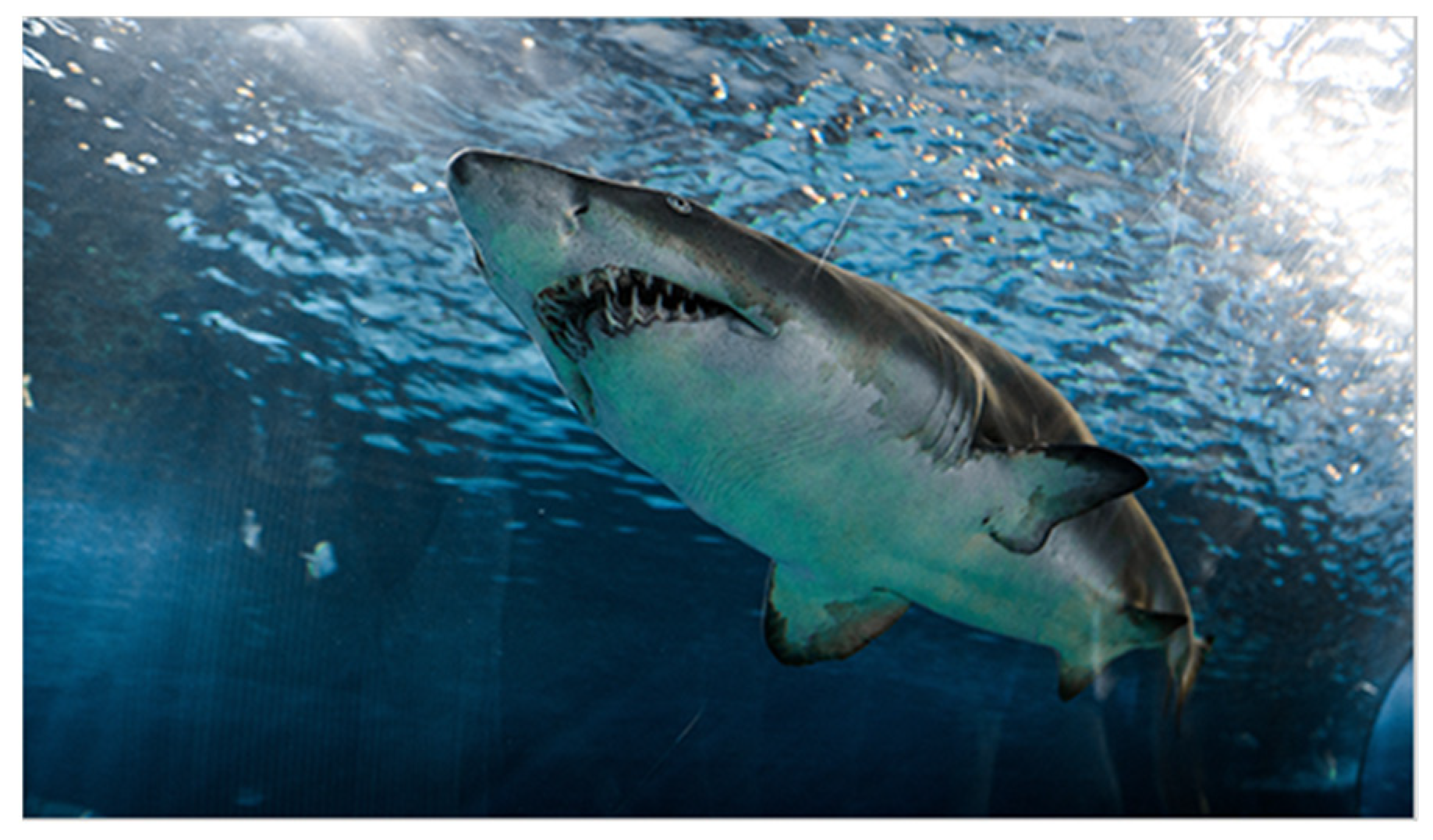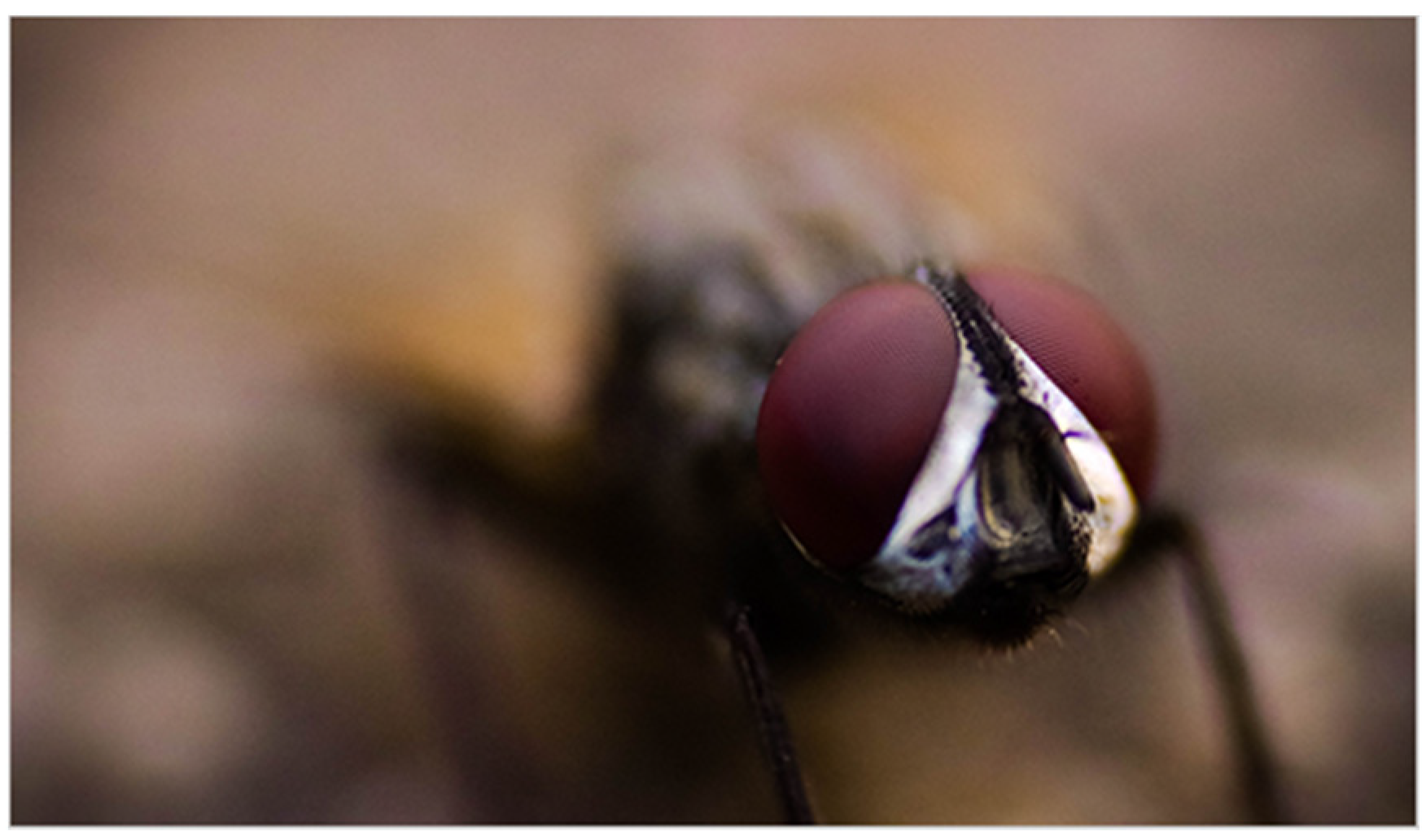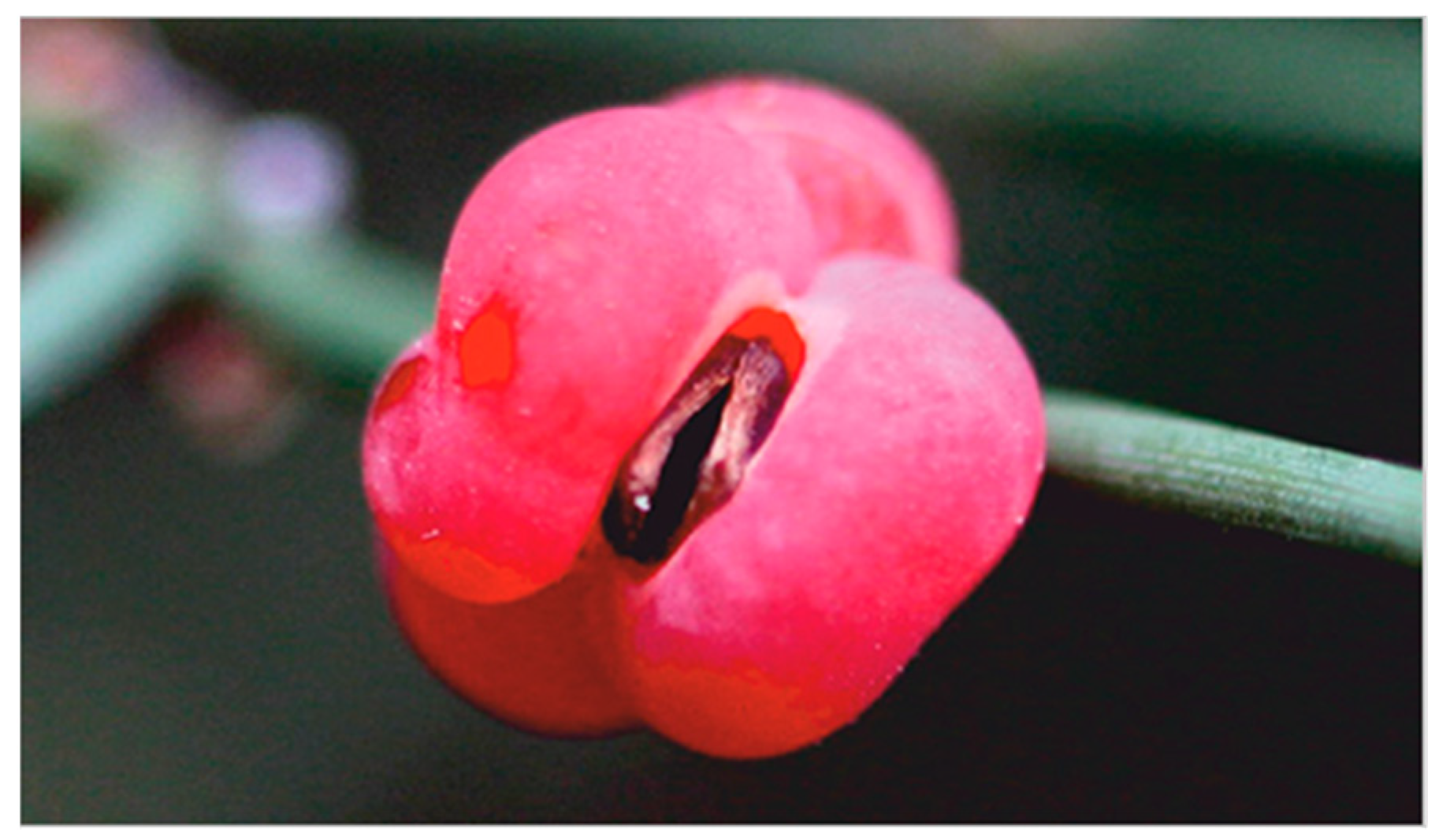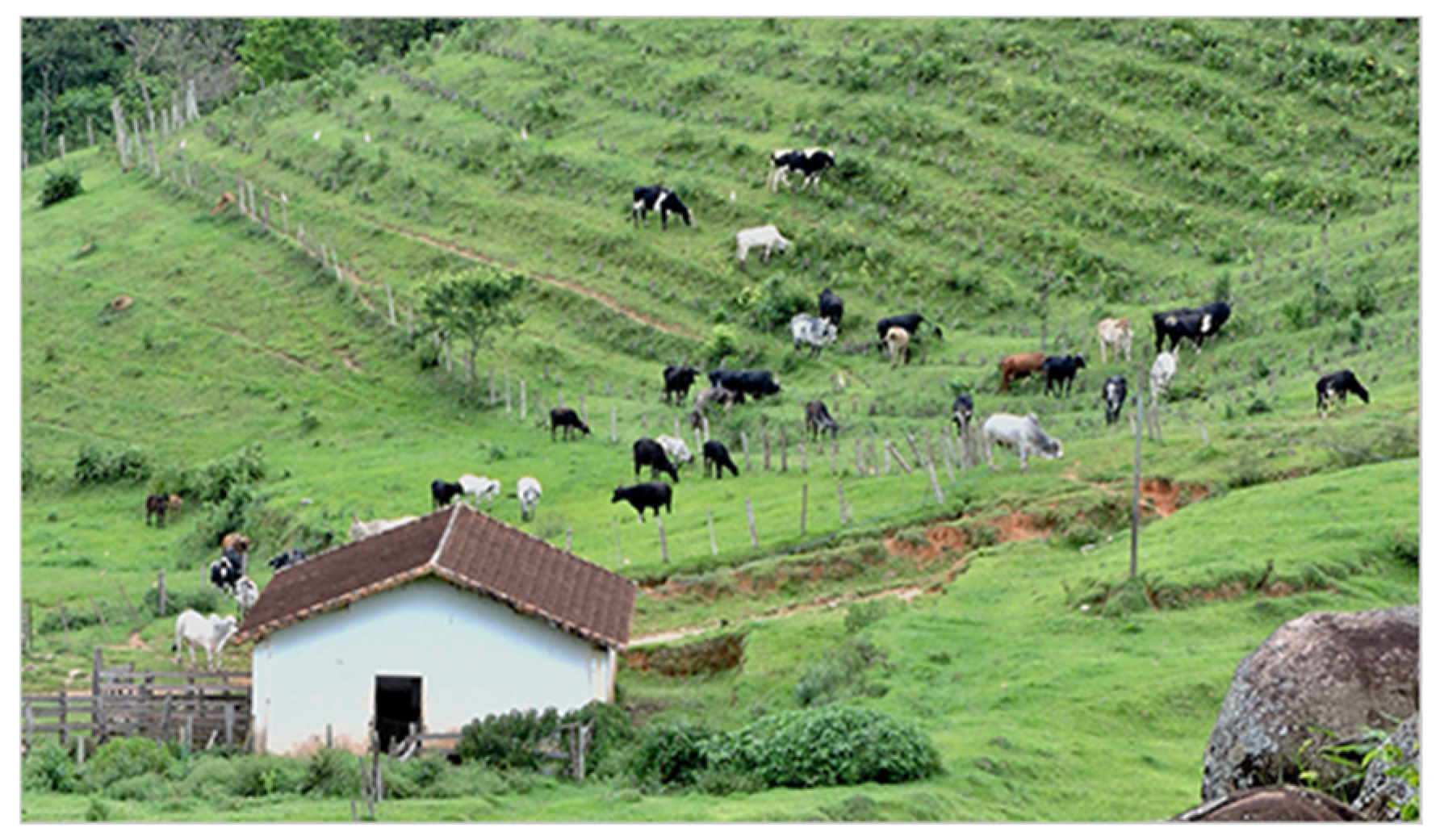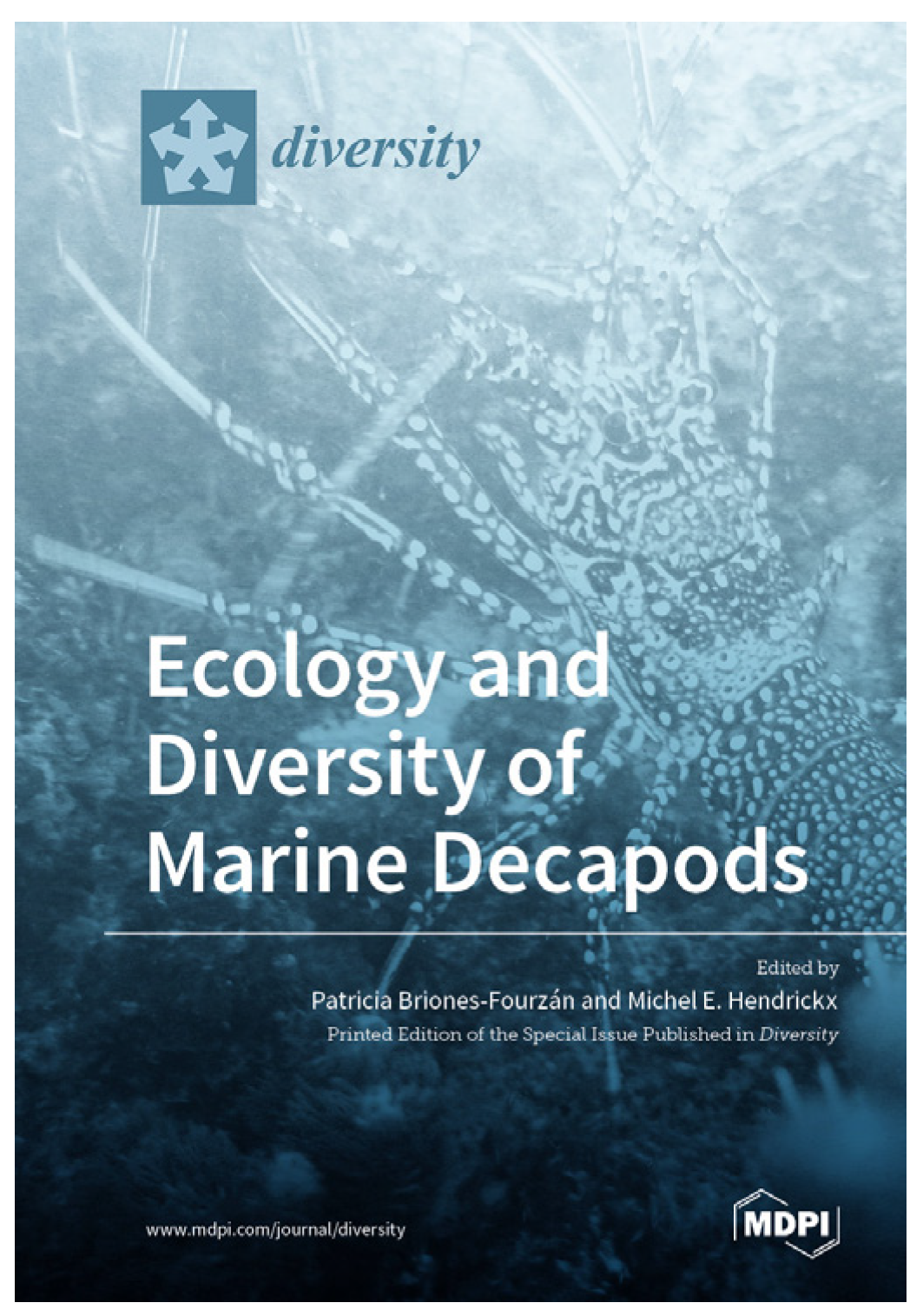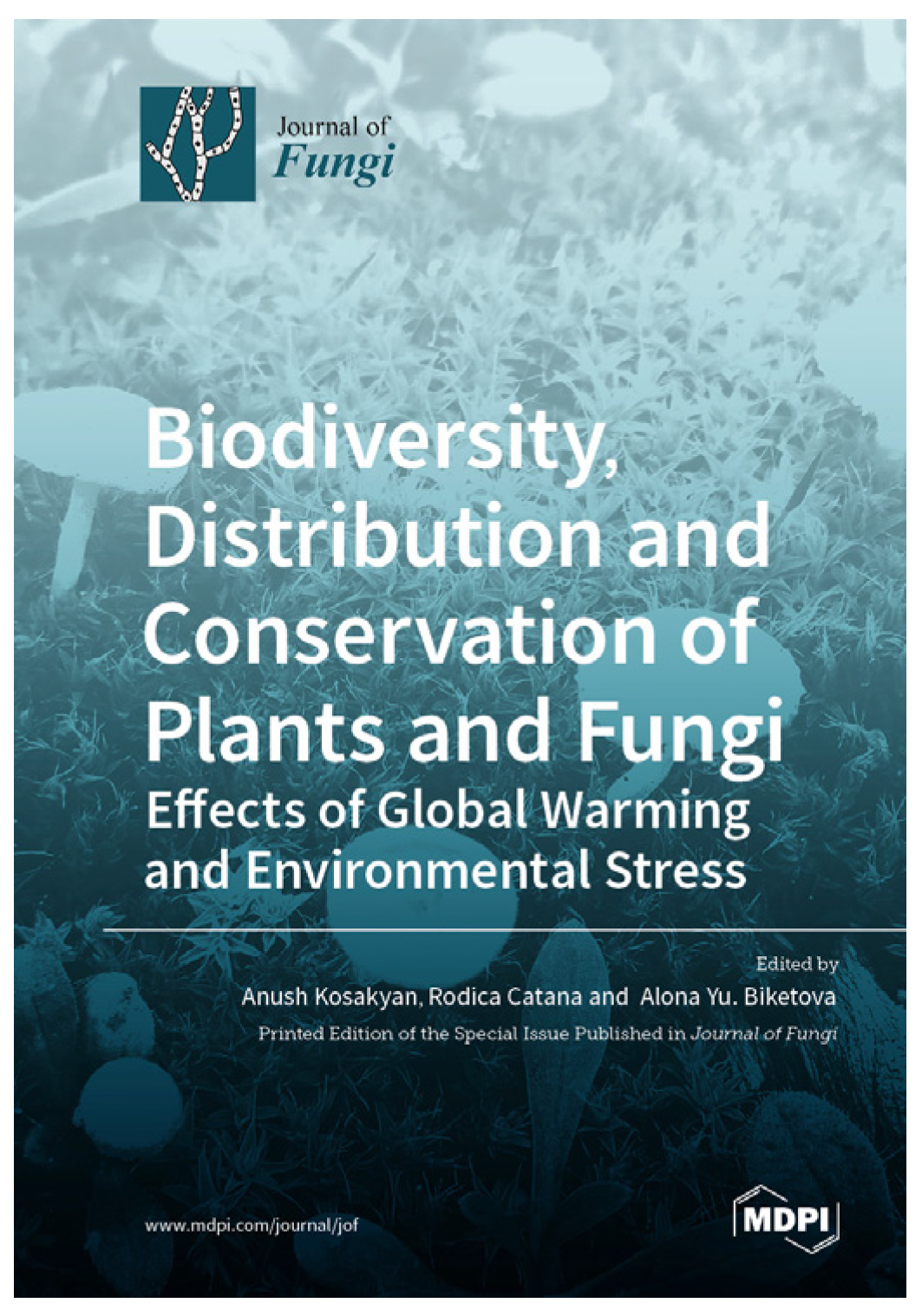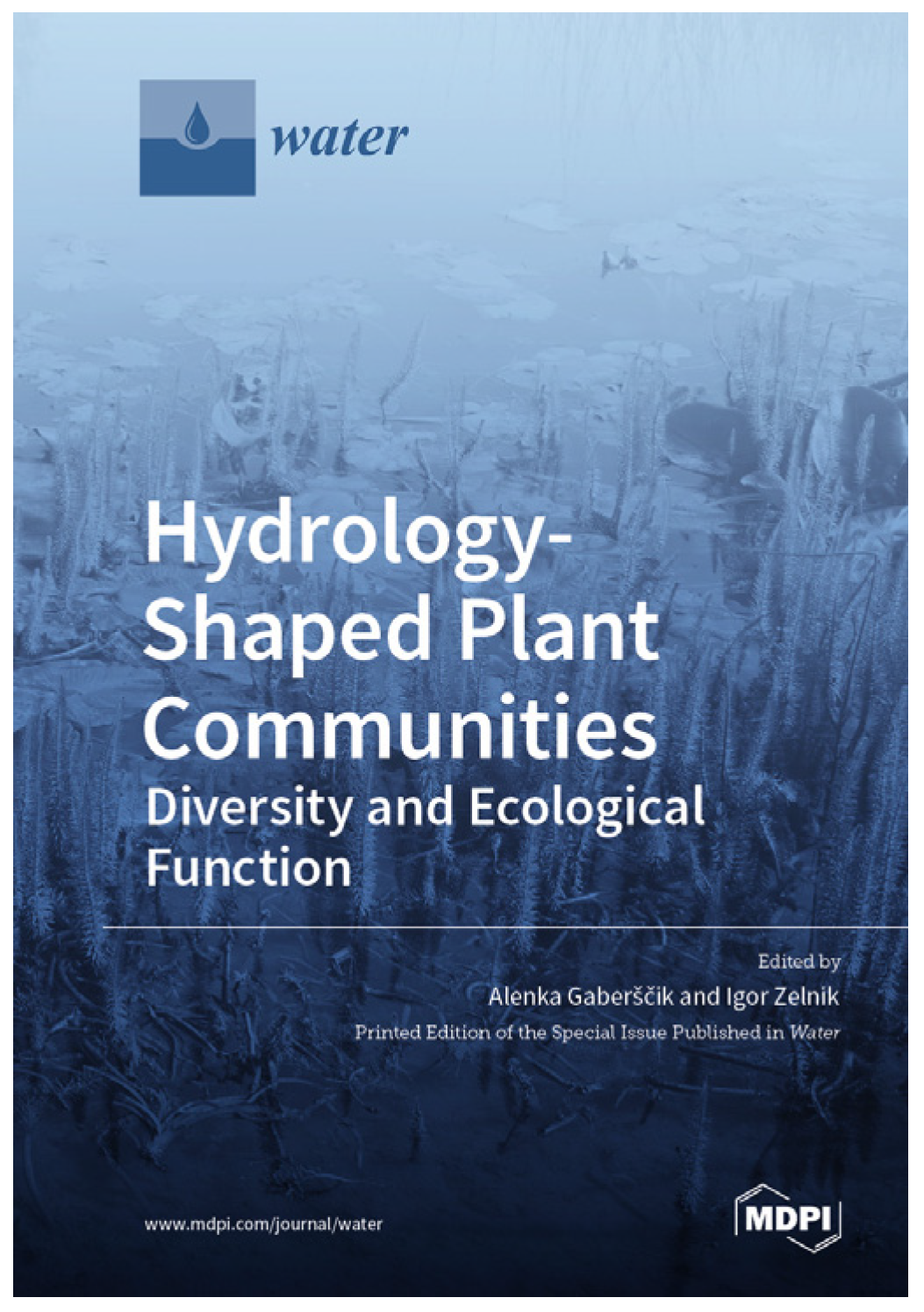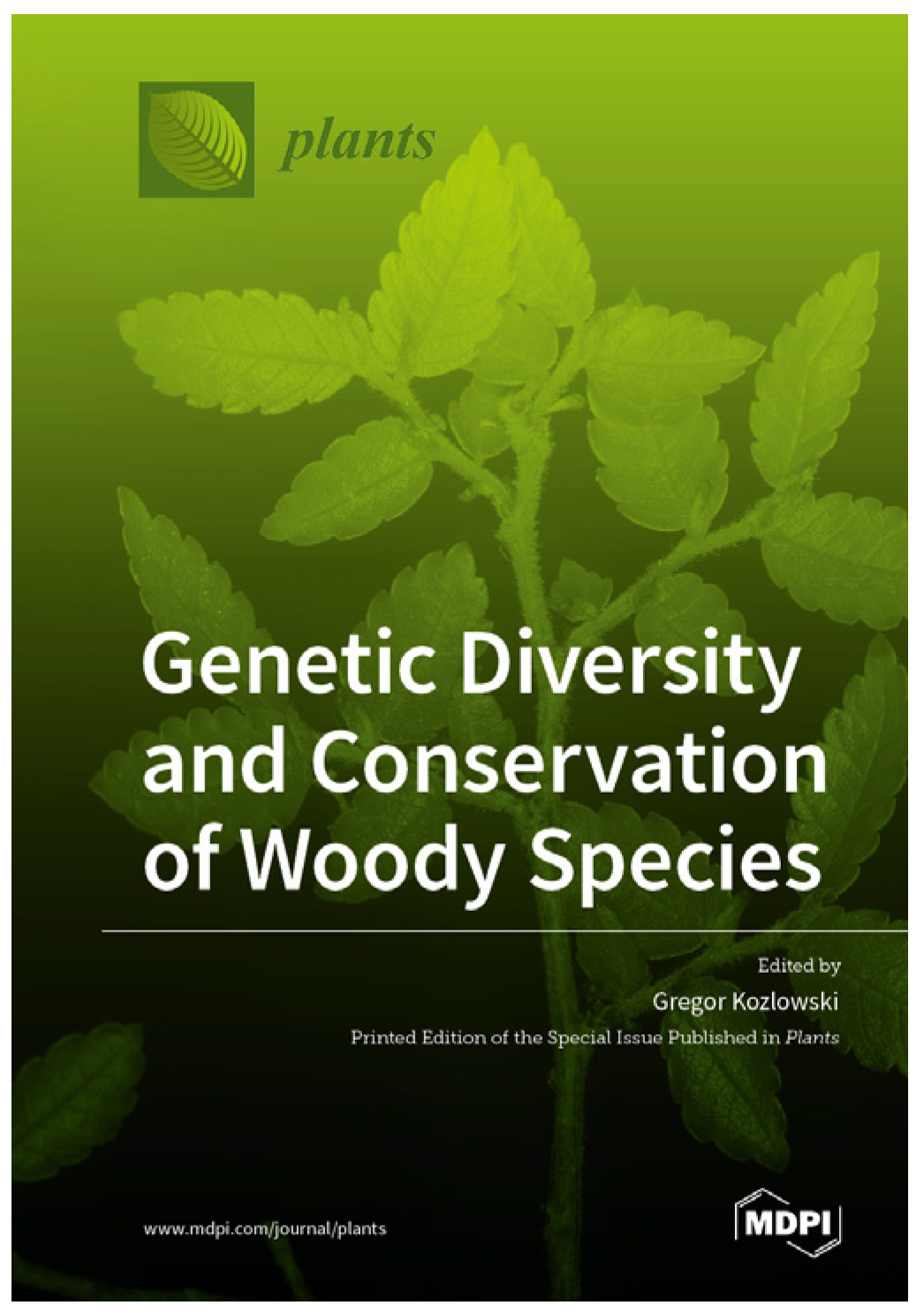
Journal Menu
► ▼ Journal Menu-
- Fishes Home
- Aims & Scope
- Editorial Board
- Reviewer Board
- Topical Advisory Panel
- Instructions for Authors
- Special Issues
- Topics
- Sections & Collections
- Article Processing Charge
- Indexing & Archiving
- Editor’s Choice Articles
- Most Cited & Viewed
- Journal Statistics
- Journal History
- Journal Awards
- Society Collaborations
- Conferences
- Editorial Office
Journal Browser
► ▼ Journal BrowserNeed Help?
Announcements
14 July 2023
Welcoming New Editorial Board Members of Fishes 2023
We are pleased to announce that twenty-four new scholars were appointed Editorial Board Members of Fishes (ISSN: 2410-3888) in May and June 2023. We wish our new members success in both their research and the development of the journal.
| Editorial Board Members | Affiliation |
| Dr. Shosaku Kashiwada | Toyo University, Japan |
| Prof. Dr. S. S. S. Sarma | Universidad Nacional Autónoma de México, Mexico |
| Dr. Patricia Moraes-Valenti | Sao Paulo State University, Brazil |
| Prof. Dr. Jiann-Jou Yang | Chung Shan Medical University, Taiwan |
| Prof. Dr. Fernando Vega-Villasante | Universidad de Guadalajara, México |
| Dr. Kerstin Holmgren | Swedish University of Agricultural Sciences, Sweden |
| Dr. Laura Susana López-Greco | Universidad de Buenos Aires, Argentina |
| Dr. Sara Ferrando | University of Genoa, Italy |
| Dr. Domitília Matias | Portuguese Institute for Sea and Atmosphere, Portugal |
| Dr. Arturo Sánchez Paz | Centro de Investigaciones Biológicas del Noroeste S.C., Mexico |
| Dr. Rodrigo Ozorio | CIIMAR (Interdisciplinary Centre of Marine and Environmental Research of the University of Porto), Portugal |
| Dr. Maria João Santos | Porto University, Portugal |
| Dr. Mediha Aksoy | USDA-ARS, USA |
| Prof. Dr. Zhangying Ye | Zhejiang University, China |
| Dr. Gualtiero Basilone | Consiglio Nazionale delle Ricerche (CNR), Italy |
| Dr. David Sánchez Peñaranda | Universitat Politècnica de València, Spain |
| Prof. Dr. Jin Niu | Sun Yat-Sen University, China |
| Prof. Dr. Houguo Xu | Chinese Academy of Fishery Sciences, China |
| Prof. Dr. Rodolphe Elie Gozlan | Université de Montpellier, France |
| Prof. Dr. Eric T. Schultz | University of Connecticut, USA |
| Dr. Chunsheng Liu | Hainan University, China |
| Dr. Assaf Barki | Agricultural Research Organization—The Volcani Center, Israel |
| Dr. Teresa Bottari | National Research Country (CNR), Italy |
| Prof. Dr. Maria Maisano | University of Messina, Italy |
Further details about the Editorial Board can be found at the following link: https://www.mdpi.com/journal/fishes/editors.
Fishes is recruiting prestigious scholars from around the world to join our Editorial Board. To apply for this position, recommend potential candidates, or request further information, please contact the Fishes Editorial Office (fishes@mdpi.com) with the following two files attached:
- A full academic CV;
- A short cover letter that details your interest in and enthusiasm for the position.
Fishes Editorial Office
11 July 2023
MDPI’s Newly Launched Journals in June 2023
With the first issue released in June 2023, five new MDPI journals disseminating multi-disciplinary science are due to launch, which will cover the subjects of medicine & pharmacology, biology and physical sciences.
The newly launched journals will be overseen by professional Editorial Board Members and Editors to ensure an accurate and rapid publication, rigorous peer review and broad visibility.
Please feel free to browse and discover more about the new journals below.
| Journal | Founding Editor-in-Chief | Journal topics (selected) |
| Prof. Dr. Jun Ma, Peking University, China| Editorial | view inaugural issue | growth and development; diet and nutrients; school health promotion policies and practices; child health and care; adolescent health and wellbeing | view journal scope | submit an article |
|
| Prof. Dr. Bernd Rehm, Griffith University, Australia | Editorial | view inaugural issue | DNA and gene synthesis; synthetic transcription factors; protein engineering; viral engineering; metabolic engineering | view journal scope | submit an article | |
| Prof. Dr. Varsha Gandhi, University of Texas MD Anderson Cancer Center, USA | Editorial | view inaugural issue | lymphatics; cancers associated with lymphocytes and lymphoblasts; lymphatic tissues; lymphoma; lymphoid leukemia | view journal scope | submit an article | |
| Dr. Bradley Turner, University of Melbourne, Australia | Editorial | view inaugural issue | multiple sclerosis; amyotrophic lateral sclerosis; primary lateral sclerosis; atherosclerosis; systemic sclerosis | view journal scope | submit an article | |
 |
Prof. Dr. Clemens Burda, Case Western Reserve University, USA | Editorial | view inaugural issue | Gamma ray, X-ray, and UV–Vis spectroscopies; NIR/mid-infrared/Raman spectroscopy; microwave and THz spectroscopy; high-resolution gas-phase atomic, molecular, and cluster spectroscopy; MS, NMR, and EPR spectroscopy | view journal scope | submit an article |
We wish to thank everyone who has supported the development of open access publishing. You are welcome to submit an application to the New Journal Committee (newjournal-committee@mdpi.com) if you would like to create more new journals.
3 July 2023
MDPI Insights: The CEO's Letter #1 - Open Access and Impactful Research

Welcome to the MDPI Insights: The CEO's Letter.
In these monthly letters, I will showcase two key aspects of our work at MDPI: our commitment to empowering researchers and our determination to facilitating open scientific exchange.
Opening Thoughts
The Future is Open, and MDPI is Leading the Way
I strongly believe in a future that embraces openness, where open source, open information, and open access (OA) take center stage. This belief that led me to join MDPI in 2020, and I am honored to have recently been appointed as Chief Executive Officer (CEO). In this capacity, and operating in close liaison with Dr. Lin and MDPI’s senior management, I shall work to build on Dr. Lin’s achievements of the past quarter-century. In this role, I will focus on communication initiatives to promote MDPI's remarkable work and continue to build our company as a trusted leader in OA publishing. For over two decades, MDPI has been at the forefront of reshaping the academic publishing landscape, with OA surpassing subscription-based publishing in 2020. This trajectory is deeply rooted in our history and reflects our unwavering commitment and vision for an open future.
1 Million Published Articles
2023 began with a remarkable achievement for MDPI, as we became the first OA publisher to reach the milestone of 1 million published articles. This represents 2.7 million unique authors who have trusted us with their work, or about a third of all researchers worldwide. As the world's most cited OA publisher, we are proud in sharing these significant milestones.
Our mission remains unchanged: to make science open and accessible to all. We understand the importance of knowledge access, empowering researchers to stay at the forefront of a rapidly changing world. Our diverse range of journals covers a wide spectrum of disciplines, offering cutting-edge insights, trusted tools, and crucial knowledge to address global challenges.
Liberating Science
As the world’s leading OA publisher, MDPI is actively liberating science. We are committed to eliminating the frustrations researchers and the general public face when accessing information, ensuring it is not locked behind paywalls. We firmly believe that everyone has a right to information, and our commitment to open access publishing drives our work.
In this inaugural edition of Insights: The CEO's Letter, I draw inspiration from the upcoming 20th anniversary of the Berlin Declaration on Open Access. Its stated mission reminds us that true impact is achieved when knowledge is widely and readily available to society:
"Our mission of disseminating knowledge is only half complete if the information is not made widely and readily available to society”
Impactful Research

MDPI Publishes Impactful Research: Recognized by Leading Indexing Databases
MDPI journals are indexed in every single top database in the world.
As of June 2023, we have 214 journals indexed within Web of Science, 223 indexed within Scopus, 87 indexed within PubMed and PMC, and 17 indexed within MEDLINE, and these numbers increase every month. We constantly strive to expand the coverage of our journals within leading multi-disciplinary and scope-specific databases, resulting in an incredibly broad range of journals that are indexed within a variety of databases. MDPI has active relationships with approximately 65 well-known databases around the world, and we continue to expand our portfolio every year so that your work can be found, cited, and referenced with ease.
Continued Growth of MDPI Journals
The 2022 Scopus and Web of Science journal citation metrics were officially released in June, and I am pleased to report that 31 MDPI journals received their first CiteScore, taking the total number of journals with a CiteScore to 216. The number of MDPI journals receiving an Impact Factor (IF) also continues to grow with 111 receiving their first, by being covered in the ESCI, bringing our total number of journals with an IF to 208 of which 41 journals received an IF above 4.0. Looking at 2022 CiteScores in the Scopus database, 80% of MDPI journals have a score that ranks them in Q1 or Q2 in at least one subject category.
Publishing impactful science would not be possible without all of our authors, editors and reviewers. Thank you for your contribution and continued support! Together we share the latest scientific insights faster and ensure that your work is accessible to all.
Read more
Inside MDPI

Preprints.org: Clarivate adds the Preprint Citation Index to the Web of Science
At MDPI, we are dedicated to driving the advancement of science. Through our initiative, Preprints.org, researchers can publish their work and gain valuable feedback from the broader research community, ensuring rapid progress in their respective fields. This is particularly crucial during times of health and climate challenges, where timely dissemination of findings is essential.
Increased Visibility for Preprints
I am pleased to share that Clarivate recognizes the significance of preprints and has taken a crucial step to enhance their visibility. Clarivate has added the Preprint Citation Index to the Web of Science, encompassing preprints published not only on Preprints.org but also on other reputable repositories.
Looking ahead, the future of preprints appears promising, bolstered by the recent indexing announcement from the Web of Science. As a result, preprints will receive increased visibility, serving as a valuable resource for staying informed about the latest research developments.
Read more
What are Preprints?
The Pros and Cons of Preprints
Preprints and COVID-19
Preprints—The Future of Open Access Publishing?
Coming Together for Science

The First International Conference on Antioxidants: Sources, Methods, Health Benefits and Industrial Applications
In this edition of ‘Coming Together for Science,’ I am pleased to highlight the First International Conference on Antioxidants organized by our conference team in the beautiful city of Barcelona, Spain. The conference attracted over 130 attendees, who engaged in 42 talks, and 89 poster presentations spread across several sessions.
Working Together
Under the leadership of Prof. Dr. Alessandra Napolitano (Department of Chemical Sciences, University of Naples ‘Federico II’, Naples, Italy) and Prof. Dr. Rosa M. Lamuela Raventos (Department of Nutrition, Food Sciences and Gastronomy, University of Barcelona, Spain) as chairs, and supported by the committee members, 10 invited keynote speakers, poster presenters, and all the attendees, this dedicated group of academics came together to discuss the natural sources, methodologies, health benefits, and industrial applications of antioxidants.
Especially noteworthy is the positive feedback received from attendees, with 94% rating the overall organization of the conference as good or excellent. I particularly love the picture above, capturing the gathering of some of the participants. You can browse through more photos in the event gallery located here.
Managing Events With Sciforum
If you are considering hosting your own academic event, I highly recommend checking out Sciforum, MDPI's event management platform. Sciforum simplifies the entire process, making it easy to host your own event by allowing you to focus on what really matters: Science!
Read more
Closing Thoughts
 Stefan Tochev, Dr. Shu-Kun Lin, Dr. Eric O. Freed, Peter Roth, Wynne Wang, Allison Yang
Stefan Tochev, Dr. Shu-Kun Lin, Dr. Eric O. Freed, Peter Roth, Wynne Wang, Allison Yang
Viruses and Editorial Quality: Acknowledging the Dedication of our Viruses Journal Team
During a June meeting with Dr. Eric O. Freed, the founding and current Editor-in-Chief of our journal Viruses, I was reminded of the exceptional dedication of our editorial board. Meeting with Eric is a pleasure, as he has a strong commitment and clear vision for the journal. Over the course of two days, we gained a deep understanding of the journal’s expectations and focus on strategic growth, editorial board representation, and engagement.
I am pleased to share that Viruses holds a CiteScore of 7.1 (an increase of 7.57% versus the 2021 metric) and an Impact Factor of 4.7. You can view the journal statistics here. Viruses publishes highly cited papers, and is indexed in renowned databases such as Scopus, SCIE (Web of Science), PubMed, and others, and maintains affiliations with prestigious societies. Moreover, the Viruses team has recently announced an exciting upcoming event titled ‘Viruses 2024 – A World of Viruses,’ scheduled to take place in Barcelona, Spain, from 14–16 February 2024.
Testimonials
If you notice my enthusiasm regarding our editorial service, it’s because the surveys and testimonials we receive speak volumes about the experiences of our authors, reviewers, and guest editors who collaborate with MDPI. The purpose of these letters is to highlight the exceptional work that we do and the experiences we create for the scholars – thus, let me end with this testimonial from an author:
“It was a great pleasure to publish in Viruses Special Issue [Emerging Viruses in Aquaculture]. The submission process was easy. Guest editors were very helpful and provided all the guidance and support as needed. The handling of the manuscript by the Editorial Team was very fast, efficient, and professional. The reviewer’s comments were insightful, and the publication processes were remarkably rapid.”
– Ms. Magdalena Stachnik, Państwowy Instytut Weterynaryjny | PIWet
Article in Viruses: Emerging Viral Pathogens in Sturgeon Aquaculture in Poland: Focus on Herpesviruses and Mimivirus Detection
Chief Executive Officer
MDPI AG
28 June 2023
2022 Impact Factors for MDPI Journals
The 2022 citation metrics have been released in the Journal Citation Reports (JCR), and we’re pleased to announce the following results for MDPI journals:

We are thrilled to announce that 90% of our ranked MDPI journals, specifically 86 out of 96 (captured in the table below), are performing above average in Q1 or Q2. This year, Clarivate has expanded its Impact Factor (IF) awards to include journals in the Emerging Sources Citation Index (ESCI) and the Arts and Humanities Citation Index (AHCI), providing greater transparency for the full set of journals indexed in the Web of Science Core Collection. As a result, 111 of MDPI journals have received their first IF in 2023, with 37 journals surpassing an IF of 3.0. In total, 208 MDPI journals have been honored with an IF.
Clarivate explains that by "expanding the coverage but holding to highly selective standards, the [Impact Factor] is now a reliable indicator of trustworthiness, as well as a measure of scholarly impact, at the journal level."
Please visit our blog post where we discuss the release of the latest citation metrics with our Indexing Manager, Dr. Constanze Schelhorn, to find out what's different this time around and how to make use of different metrics available.
| Journal | Impact Factor | Rank Quartile | Category |
| Vaccines | 7.8 | Q1 | Immunology |
| Medicine, Research & Experimental | |||
| Antioxidants | 7.0 | Q1 | Food Science & Technology |
| Biochemistry & Molecular Biology | |||
| Chemistry, Medicinal | |||
| Cells | 6.0 | Q2 | Cell Biology |
| Nutrients | 5.9 | Q1 | Nutrition & Dietetics |
| International Journal of Molecular Sciences | 5.6 | Q1 | Biochemistry & Molecular Biology |
| Q2 | Chemistry, Multidisciplinary | ||
| Journal of Theoretical and Applied Electronic Commerce Research | 5.6 | Q2 | Business |
| Biomolecules | 5.5 | Q1 | Biochemistry & Molecular Biology |
| Biosensors | 5.4 | Q1 | Chemistry, Analytical |
| Instruments & Instrumentation | |||
| Q2 | Nanoscience & Nanotechnology | ||
| Fractal and Fractional | 5.4 | Q1 | Mathematics, Interdisciplinary Applications |
| Marine Drugs | 5.4 | Q1 | Chemistry, Medicinal |
| Pharmacology & Pharmacy | |||
| Pharmaceutics | 5.4 | Q1 | Pharmacology & Pharmacy |
| Nanomaterials | 5.3 | Q1 | Physics, Applied |
| Q2 | Chemistry, Multidisciplinary | ||
| Materials Science, Multidisciplinary | |||
| Nanoscience & Nanotechnology | |||
| Cancers | 5.2 | Q2 | Oncology |
| Foods | 5.2 | Q1 | Food Science & Technology |
| Polymers | 5.0 | Q1 | Polymer Science |
| Remote Sensing | 5.0 | Q1 | Geosciences, Multidisciplinary |
| Q2 | Remote Sensing | ||
| Imaging Science & Photographic Technology | |||
| Environmental Sciences | |||
| Antibiotics | 4.8 | Q1 | Pharmacology & Pharmacy |
| Q2 | Infectious Diseases | ||
| Drones | 4.8 | Q2 | Remote Sensing |
| Journal of Functional Biomaterials | 4.8 | Q2 | Engineering, Biomedical |
| Materials Science, Biomaterials | |||
| Biomedicines | 4.7 | Q1 | Pharmacology & Pharmacy |
| Q2 | Biochemistry & Molecular Biology | ||
| Medicine, Research & Experimental | |||
| Journal of Fungi | 4.7 | Q2 | Mycology |
| Microbiology | |||
| Viruses | 4.7 | Q2 | Virology |
| Bioengineering | 4.6 | Q2 | Engineering, Biomedical |
| Gels | 4.6 | Q1 | Polymer Science |
| Molecules | 4.6 | Q2 | Chemistry, Multidisciplinary |
| Biochemistry & Molecular Biology | |||
| Pharmaceuticals | 4.6 | Q2 | Pharmacology & Pharmacy |
| Chemistry, Medicinal | |||
| Toxics | 4.6 | Q1 | Toxicology |
| Q2 | Environmental Sciences | ||
| Biomimetics | 4.5 | Q1 | Engineering, Multidisciplinary |
| Q2 | Materials Science, Biomaterials | ||
| Microorganisms | 4.5 | Q2 | Microbiology |
| Plants | 4.5 | Q1 | Plant Sciences |
| Biology | 4.2 | Q2 | Biology |
| Chemosensors | 4.2 | Q2 | Instruments & Instrumentation |
| Chemistry, Analytical | |||
| Electrochemistry | |||
| Membranes | 4.2 | Q2 | Engineering, Chemical |
| Materials Science, Multidisciplinary | |||
| Chemistry, Physical | |||
| Polymer Science | |||
| Toxins | 4.2 | Q1 | Toxicology |
| Q2 | Food Science & Technology | ||
| Metabolites | 4.2 | Q2 | Biochemistry & Molecular Biology |
| Batteries | 4.0 | Q2 | Electrochemistry |
| Materials Science, Multidisciplinary | |||
| Q3 | Energy & Fuels | ||
| Catalysts | 3.9 | Q2 | Chemistry, Physical |
| Journal of Clinical Medicine | 3.9 | Q2 | Medicine, General & Internal |
| Land | 3.9 | Q2 | Environmental Studies |
| Sensors | 3.9 | Q2 | Instruments & Instrumentation |
| Chemistry, Analytical | |||
| Engineering, Electrical & Electronic | |||
| Sustainability | 3.9 | Q2 | Environmental Sciences (SCIE) |
| Environmental Studies (SSCI) | |||
| Q3 | Green & Sustainable Science & Technology (SCIE) | ||
| Green & Sustainable Science & Technology (SSCI) | |||
| Buildings | 3.8 | Q2 | Construction & Building Technology |
| Engineering, Civil | |||
| Agronomy | 3.7 | Q1 | Agronomy |
| Q2 | Plant Sciences | ||
| Fermentation | 3.7 | Q2 | Biotechnology & Applied Microbiology |
| Pathogens | 3.7 | Q2 | Microbiology |
| Agriculture | 3.6 | Q1 | Agronomy |
| Diagnostics | 3.6 | Q2 | Medicine, General & Internal |
| Genes | 3.5 | Q2 | Genetics & Heredity |
| Journal of Intelligence | 3.5 | Q2 | Psychology, Multidisciplinary |
| Lubricants | 3.5 | Q2 | Engineering, Mechanical |
| Processes | 3.5 | Q2 | Engineering, Chemical |
| Coatings | 3.4 | Q2 | Materials Science, Coatings & Films |
| Physics, Applied | |||
| Q3 | Materials Science, Multidisciplinary | ||
| ISPRS International Journal of Geo-Information | 3.4 | Q2 | Geography, Physical |
| Q3 | Computer Science, Information Systems | ||
| Remote Sensing | |||
| Materials | 3.4 | Q2 | Metallurgy & Metallurgical Engineering |
| Physics, Applied | |||
| Physics, Condensed Matter | |||
| Q3 | Materials Science, Multidisciplinary | ||
| Chemistry, Physical | |||
| Micromachines | 3.4 | Q2 | Instruments & Instrumentation |
| Physics, Applied | |||
| Chemistry, Analytical | |||
| Q3 | Nanoscience & Nanotechnology | ||
| Water | 3.4 | Q2 | Water Resources |
| Environmental Sciences | |||
| Brain Sciences | 3.3 | Q3 | Neurosciences |
| Energies | 3.2 | Q3 | Energy & Fuels |
| Fire | 3.2 | Q1 | Forestry |
| Q2 | Ecology | ||
| Life | 3.2 | Q2 | Biology |
| Current Issues in Molecular Biology | 3.1 | Q3 | Biochemistry & Molecular Biology |
| Horticulturae | 3.1 | Q1 | Horticulture |
| Animals | 3.0 | Q1 | Agriculture, Dairy & Animal Science |
| Veterinary Sciences | |||
| Insects | 3.0 | Q1 | Entomology |
| Atmosphere | 2.9 | Q3 | Meteorology & Atmospheric Sciences |
| Environmental Sciences | |||
| Electronics | 2.9 | Q2 | Engineering, Electrical & Electronic |
| Physics, Applied | |||
| Q3 | Computer Science, Information Systems | ||
| Forests | 2.9 | Q1 | Forestry |
| Inorganics | 2.9 | Q2 | Chemistry, Inorganic & Nuclear |
| Journal of Marine Science and Engineering | 2.9 | Q1 | Engineering, Marine |
| Q2 | Oceanography | ||
| Engineering, Ocean | |||
| Metals | 2.9 | Q2 | Metallurgy & Metallurgical Engineering |
| Q3 | Materials Science, Multidisciplinary | ||
| Tropical Medicine and Infectious Disease | 2.9 | Q2 | Tropical Medicine |
| Parasitology | |||
| Q3 | Infectious Diseases | ||
| Universe | 2.9 | Q2 | Astronomy & Astrophysics |
| Physics, Particles & Fields | |||
| Healthcare | 2.8 | Q2 | Health Policy & Services (SSCI) |
| Q3 | Health Care Sciences & Services (SCIE) | ||
| Applied Sciences | 2.7 | Q2 | Engineering, Multidisciplinary |
| Physics, Applied | |||
| Q3 | Chemistry, Multidisciplinary | ||
| Materials Science, Multidisciplinary | |||
| Crystals | 2.7 | Q2 | Crystallography |
| Q3 | Materials Science, Multidisciplinary | ||
| Entropy | 2.7 | Q2 | Physics, Multidisciplinary |
| Magnetochemistry | 2.7 | Q2 | Chemistry, Inorganic & Nuclear |
| Q3 | Chemistry, Physical | ||
| Materials Science, Multidisciplinary | |||
| Symmetry | 2.7 | Q2 | Multidisciplinary Sciences |
| Actuators | 2.6 | Q2 | Instruments & Instrumentation |
| Engineering, Mechanical | |||
| Aerospace | 2.6 | Q1 | Engineering, Aerospace |
| Behavioral Sciences | 2.6 | Q2 | Psychology, Multidisciplinary |
| Current Oncology | 2.6 | Q3 | Oncology |
| Machines | 2.6 | Q2 | Engineering, Mechanical |
| Q3 | Engineering, Electrical & Electronic | ||
| Medicina | 2.6 | Q3 | Medicine, General & Internal |
| Separations | 2.6 | Q3 | Chemistry, Analytical |
| Minerals | 2.5 | Q2 | Mining & Mineral Processing |
| Mineralogy | |||
| Geochemistry & Geophysics | |||
| Children | 2.4 | Q2 | Pediatrics |
| Diversity | 2.4 | Q2 | Biodiversity Conservation |
| Q3 | Ecology | ||
| Journal of Cardiovascular Development and Disease | 2.4 | Q3 | Cardiac & Cardiovascular Systems |
| Mathematics | 2.4 | Q1 | Mathematics |
| Photonics | 2.4 | Q3 | Optics |
| Veterinary Sciences | 2.4 | Q1 | Veterinary Sciences |
| Fishes | 2.3 | Q2 | Marine & Freshwater Biology |
| Fisheries | |||
| Axioms | 2.0 | Q2 | Mathematics, Applied |
| Systems | 1.9 | Q2 | Social Sciences, Interdisciplinary |
| Tomography | 1.9 | Q3 | Radiology, Nuclear Medicine & Medical Imaging |
Note: The Journal of Personalized Medicine's Impact Factor was omitted in the original release and will be assigned separately. Please find the data on the journal webpage in due course.
Source: 2022 Journal Impact Factors, Journal Citation Reports TM (Clarivate, 2023)
6 June 2023
Fishes | Special Issue Mentor Program 2023

We are pleased to announce the launch of a new initiative—The Fishes Special Issue Mentor Program.
This program will enable early career researchers (they must hold a Ph.D. in a related field) to experience editing a Special Issue in MDPI journals, under the mentorship of our experienced Editorial Board Members or other experienced scientists. The mentor program will provide an excellent opportunity for early career scientists to gain editorial experience and to cultivate their ability to edit scientific research.
The mentee’s responsibilities include:
- Proposing a Special Issue title and assisting the mentor in preparing a summary (around 200–400 words) and 3–10 keywords describing the background, importance, and goal of the issue;
- Writing a brief promotion plan for the Special Issue;
- Preparing a list of scholars that may be interested in the issue and personally e-mailing the invitations on behalf of Guest Editors;
- Writing an editorial for the online Special Issue together with the mentor.
The mentor’s responsibilities include:
- Conducting a final check before the Special Issue is published online;
- Performing editorial control of the Special Issue and quality control of the publications in a timely manner;
- Providing suggestions to younger scholars if they have any doubts or concerns regarding submissions;
- Organizing video calls with young scholars and the Editorial Office regularly to discuss problems and suggestions for improvements for the Special Issue;
- Making and submitting decisions for the submissions under the assistance of mentees.
Certificates and awards:
After the Special Issue closes, the Editorial Office will provide official certificates for all the Guest Editor mentors and mentees.
If you are interested in this opportunity, please send your Special Issue proposal to the Fishes Editorial Office (fishes@mdpi.com), and we will discuss the process (i.e., mentor collaboration, Special Issue topic feasibility analysis, etc.) in further detail.
In addition to the new Special Issue Mentor Program, Fishes (ISSN: 2410-3888) will continue to welcome all Special Issue proposals focusing on hot research topics.
Fishes Editorial Office
19 May 2023
2023 International Day for Biological Diversity

The International Day for Biological Diversity will be celebrated on 22 May 2023, under the theme “From Agreement to Action: Build Back Biodiversity”, which aims to raise awareness and understanding of biodiversity issues. Biodiversity refers to the diversity of all life forms on Earth, including genetic, species, and ecosystem diversity. Biological diversity resources are the pillars upon which we build civilizations; however, the loss of biodiversity threatens everything, including our health. We hope that the established MDPI journals on life sciences and biology, including Biology, Diversity, Fishes, Birds, Insects, Water, Forests, Grasses, Life, Seeds, Agriculture, and Agronomy, will provide suitable communication platforms. The aim is to strengthen scientific cooperation in response to the International Day for Biological Diversity and to embrace the potential to promote sustainable development.


“Avifaunal Diversity and Abundance in the Proposed Sarasalai Mangrove Reserve, Jaffna, Sri Lanka”
by Nitharsan Aloysius, Shashi Madhushanka and Chathuri Chandrika
Birds 2023, 4(1), 103-116; https://doi.org/10.3390/birds4010009
“Perils of Underestimating Species Diversity: Revisiting Systematics of Psammocambeva Catfishes (Siluriformes: Trichomycteridae) from the Rio Paraíba do Sul Basin, South-Eastern Brazil”
by Wilson J. E. M. Costa, José Leonardo Mattos, Paulo J. Vilardo, Pedro F. Amorim and Axel M. Katz
Taxonomy 2022, 2(4), 491-523; https://doi.org/10.3390/taxonomy2040032
“Environmental DNA Metabarcoding: A Novel Contrivance for Documenting Terrestrial Biodiversity”
by Shahnawaz Hassan, Sabreena, Peter Poczai, Bashir Ah Ganai, Waleed Hassan Almalki, Abdul Gafur and R. Z. Sayyed
Biology 2022, 11(9), 1297; https://doi.org/10.3390/biology11091297
“Dam Construction Impacts Fish Biodiversity in a Subtropical River Network, China”
by Xiongjun Liu, Julian D. Olden, Ruiwen Wu, Shan Ouyang and Xiaoping Wu
Diversity 2022, 14(6), 476; https://doi.org/10.3390/d14060476
“Human Communities in Protected Natural Areas and Biodiversity Conservation”
by Elizabeth Olmos-Martínez, Heidi Leticia Romero-Schmidt, María del Carmen Blázquez, Camilo Arias-González and Alfredo Ortega-Rubio
Diversity 2022, 14(6), 441; https://doi.org/10.3390/d14060441
“Effects of Habitat Fragmentation on the Population Structure and Genetic Diversity of Erythroneurini in the Typical Karst Rocky Ecosystem, Southwest China”
by Chen Xiaoxiao, Jia Jiang, Ni Zhang, Xiao Yang, Yongkuan Chi and Yuehua Song
Insects 2022, 13(6), 499; https://doi.org/10.3390/insects13060499
“Application of Ecological Restoration Technologies for the Improvement of Biodiversity and Ecosystem in the River”
by Li Pushuang, Dan Li, Xiaoqing Sun, Zhaosheng Chu, Ting Xia and Binghui Zheng
Water 2022, 14(9), 1402; https://doi.org/10.3390/w14091402
“Conservation-Status Gaps for Marine Top-Fished Commercial Species”
by Imanol Miqueleiz, Rafael Miranda, Arturo Hugo Ariño and Elena Ojea
Fishes 2022, 7(1), 2; https://doi.org/10.3390/fishes7010002

| Special Issue: “Elasmobranch Biodiversity, Conservation and Management” Edited by: Dr. Fabrizio Serena and Dr. Fabio Fiorentino |
Special Issue: “Systematics, Evolution, and Diversity of Dance Flies (Diptera, Empidoidea)” Edited by: Dr. Christophe Daugeron |
||
| Special Issue: “Taxonomy, Biodiversity and Ecology of Mediterranean Plants” Edited by: Dr. Saverio Sciandrello, Dr. Carmelo Maria Musarella and Dr. Ricardo Quinto-Canas |
Special Issue: “Macro-Ecology, Macro-Evolution and Conservation of Animals and Plants” Edited by: Prof. Dr. Youhua Chen, Prof. Dr. Kaiwen Pan and Prof. Dr. Xiaohong Chen |
||

International Day for Biological Diversity
Date and time: 22 May 2023, 9–11 a.m. (CEST)
This is a free webinar. After registering, you will receive a confirmation email containing information on how to join the webinar.

18 May 2023
Fishes | Recruiting Editorial Board Members for New Sections 2023

To develop different research areas and attract more high-quality papers, we are pleased to announce the following new Sections in Fishes:
- “Aquatic Invertebrates”;
- “Fish Pathology and Parasitology”.
We are now recruiting Editorial Board Members (EBMs) for these Sections. If you are an active researcher in one of the aforementioned fields and are passionate about publishing cutting-edge research, please do not hesitate to get in touch (fishes@mdpi.com). You can find more information on our homepage: https://www.mdpi.com/journal/fishes.
Editorial Board Members have the following responsibilities:
- Making decisions on whether a manuscript can be accepted, based on the reports we collect;
- Reviewing a small number of papers per year;
- Acting as a Guest Editor of a Special Issue on a topic related to your research interests;
- Promoting Fishes and increasing its visibility at related academic conferences.
Fishes (ISSN: 2410-3888) is an international, peer-reviewed, and open access journal that provides an advanced forum for studies related to fishes and aquatic animals. Fishes has been indexed by Science Citation Index Expanded (SCIE), and the 2021 IF was 3.170.
We believe that by combining our rigorous editorial policies with your expertise, we can achieve a high-quality journal. We thank you in advance for your interest, and we look forward to collaborating with you.
Fishes Editorial Office
5 May 2023
Fishes | Editor's Choice Articles in Q4 2022
1. “The Complete Mitochondrial Genome of Hyotissa hyotis (Bivalvia: Gryphaeidae) Reveals a Unique Gene Order within Ostreoidea”
by Fengping Li, Mingfu Fan, Shunshun Wang, Zhifeng Gu, Aimin Wang, Chunsheng Liu, Yi Yang and Shikai Liu
Fishes 2022, 7(6), 317; https://doi.org/10.3390/fishes7060317
Available online: https://www.mdpi.com/2410-3888/7/6/317
2. “A Review on the Use of Computer Vision and Artificial Intelligence for Fish Recognition, Monitoring, and Management”
by Jayme Garcia Arnal Barbedo
Fishes 2022, 7(6), 335; https://doi.org/10.3390/fishes7060335
Available online: https://www.mdpi.com/2410-3888/7/6/335
3. “Resilience of Communities and Sustainable Aquaculture: Governance and Regulatory Effects”
by Carole R. Engle and Jonathan van Senten
Fishes 2022, 7(5), 268; https://doi.org/10.3390/fishes7050268
Available online: https://www.mdpi.com/2410-3888/7/5/268
4. “Anthropogenic Contaminants Shape the Fitness of the Endangered European Eel: A Machine Learning Approach”
by Bastien Bourillon, Eric Feunteun, Anthony Acou, Thomas Trancart, Nils Teichert, Claude Belpaire, Sylvie Dufour, Paco Bustamante, Kim Aarestrup, Alan Walker et al.
Fishes 2022, 7(5), 274; https://doi.org/10.3390/fishes7050274
Available online: https://www.mdpi.com/2410-3888/7/5/274
5. “Elevated Winter Stream Temperatures below Wastewater Treatment Plants Shift Reproductive Development of Female Johnny Darter Etheostoma nigrum: A Field and Histologic Approach”
by Catherine M. Adams, Dana L. Winkelman, Paula A. Schaffer, Daniel L. Villeneuve, Jenna E. Cavallin, Michael Ellman, Kelvin Santana Rodriguez and Ryan M. Fitzpatrick
Fishes 2022, 7(6), 361; https://doi.org/10.3390/fishes7060361
Available online: https://www.mdpi.com/2410-3888/7/6/361
6. “Influence of Thermal Regimes on the Relationship between Parasitic Load and Body Condition in European Sardine along the Catalan Coast”
by Xènia Frigola-Tepe, Marta Caballero-Huertas, Jordi Viñas and Marta Muñoz
Fishes 2022, 7(6), 358; https://doi.org/10.3390/fishes7060358
Available online: https://www.mdpi.com/2410-3888/7/6/358
7. “Validation of a Portable eDNA Detection Kit for Invasive Carps”
by Stacie A. Kageyama, Matthew R. Hoogland, Tariq Tajjioui, Theresa M. Schreier, Richard A. Erickson and Christopher M. Merkes
Fishes 2022, 7(6), 363; https://doi.org/10.3390/fishes7060363
Available online: https://www.mdpi.com/2410-3888/7/6/363
8. “Production of Marine Shrimp Integrated with Tilapia at High Densities and in a Biofloc System: Choosing the Best Spatial Configuration”
by Mariana Holanda, Wilson Wasielesky, Jr., Gabriele Rodrigues de Lara and Luís H. Poersch
Fishes 2022, 7(5), 283; https://doi.org/10.3390/fishes7050283
Available online: https://www.mdpi.com/2410-3888/7/5/283
9. “Genetic Diversity and Population Structure of the Giant Mottled Eel, Anguilla marmorata Quoy & Gaimard, 1824 in Central Vietnam”
by Anh Tuan Nguyen, Hoc Tan Dao, Hoang Tan Quang, Seishi Hagihara, P. Mark Lokman and Erin L. Damsteegt
Fishes 2022, 7(5), 286; https://doi.org/10.3390/fishes7050286
Available online: https://www.mdpi.com/2410-3888/7/5/286
10. “Larval Retention and Homing Behaviour Shape the Genetic Structure of the Bullet Tuna (Auxis rochei) in the Mediterranean Sea”
by Judith Ollé-Vilanova, Núria Pérez-Bielsa, Rosa Maria Araguas, Núria Sanz, Sámar Saber, David Macías and Jordi Viñas
Fishes 2022, 7(5), 300; https://doi.org/10.3390/fishes7050300
Available online: https://www.mdpi.com/2410-3888/7/5/300
13 March 2023
MDPI’s Newly Launched Journals in December 2022
As a leading open access publisher, MDPI provides scholars with a high-quality and rich academic exchange platform by continuously expanding into new and exciting research areas.
In December 2022, MDPI launched five new journals, covering multiple subjects such as life sciences, biology, medicine and pharmacology, social sciences and humanities. These new journals are being edited by established scholars across the world.
|
Journal |
Founding Editor-in-Chief |
Journal Topics (Selected) |
|
Prof. Dr. Fabio Gresta, University of Messina, Italy| Editorial | view inaugural issue |
grass/forage/turf production; grassland management; pasture monitoring; grazing and livestock; grass agro-ecosystems| view journal scope | submit an article |
|
|
Prof. Dr. Christos G. Athanassiou, University of Thessaly, Greece| Editorial | view inaugural issue |
pesticides; fungicides; herbicides; fertilizers; soil conditioners| view journal scope | submit an article |
|
|
Prof. Dr. Stephen H. Safe, Texas A&M University, USA| Editorial | view inaugural issue |
receptor structure; receptor function; receptor signaling; receptor expression and regulation; receptor interactions with drugs| view journal scope | submit an article |
|
|
Dr. Jean Jacques Vanden Eynde, University of Mons-UMONS, Belgium| Editorial | view inaugural issue |
drug discovery; medicinal chemistry; preclinical and clinical research; marketed drugs; intellectual property and regulatory affairs| view journal scope | submit an article |
|
|
Prof. Dr. Heather Kanuka, University of Alberta, Canada| Editorial | view inaugural issue |
higher education; tertiary education; policy and practice in higher education; educational leadership in higher education; educational administration and management in higher education| view journal scope | submit an article |
If you are interested in creating more open access journals with us to publish cutting-edge research, please send your journal proposal application to newjournal-committee@mdpi.com.
7 March 2023
Displaying Co-Authors’ Email Addresses on the Webpage of Published Papers
MDPI is pleased to announce that we now display the co-authors’ email addresses in addition to the corresponding author’s email address on the webpage of published papers, protected by Captcha. For more information about this change, please visit the journal’s instructions for authors page.
We believe this change will facilitate academic discussions and advance our cause of open science and research. The corresponding authors are responsible for communicating with their co-authors and indicating in our system (https://susy.mdpi.com/) if co-authors would prefer for their email addresses not to be displayed.















